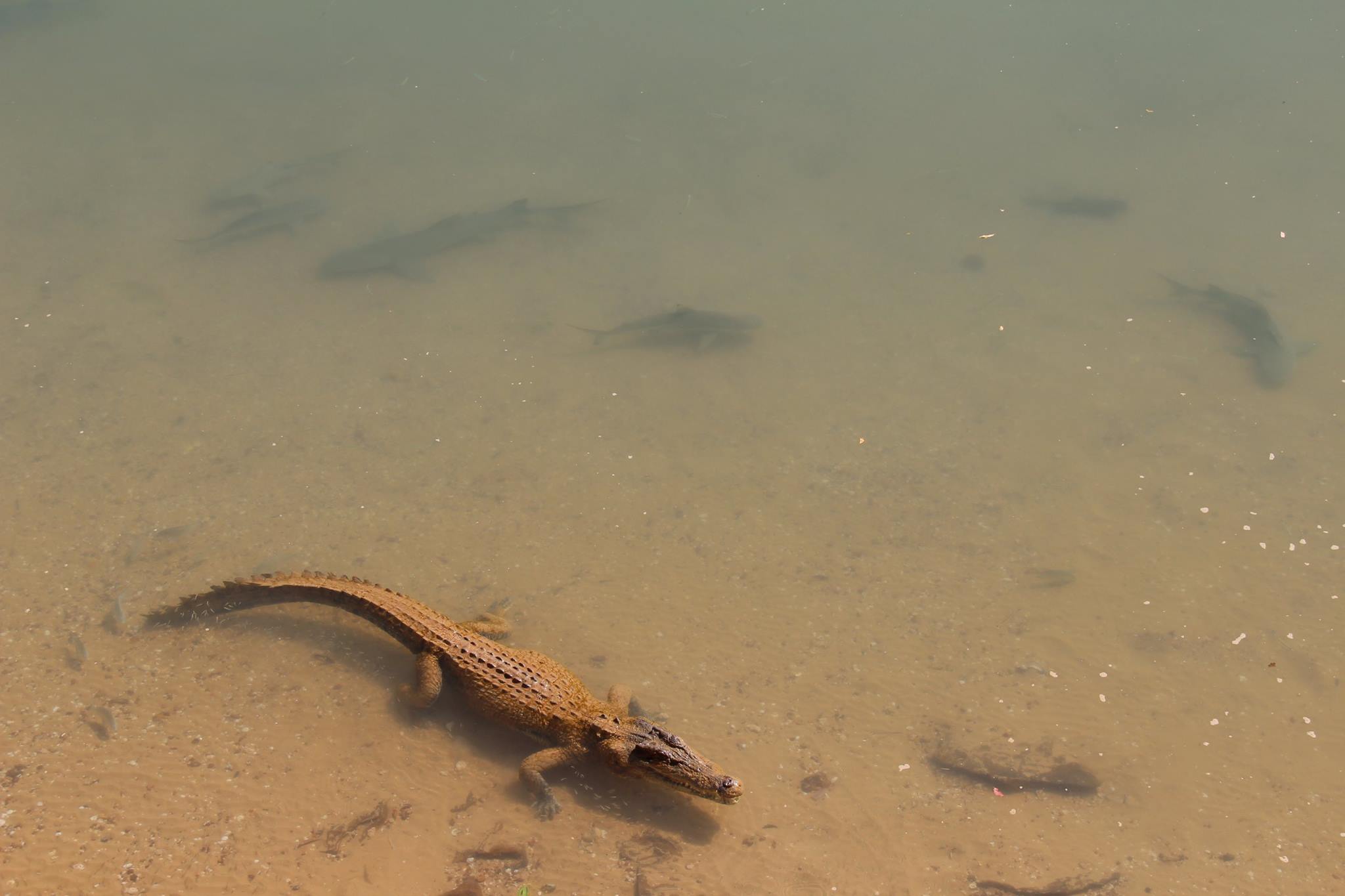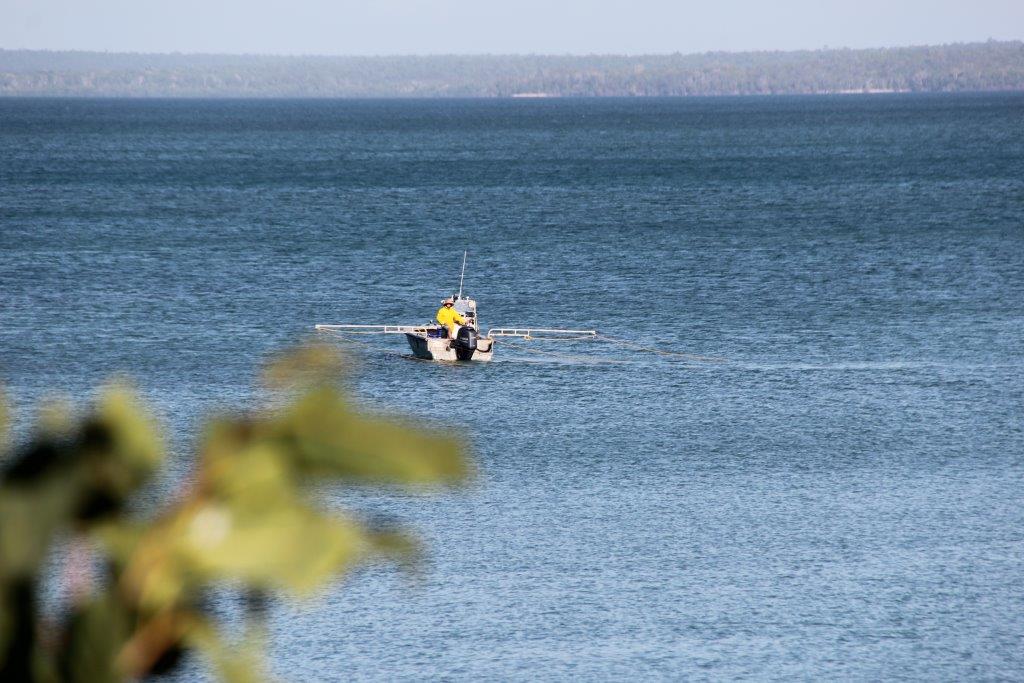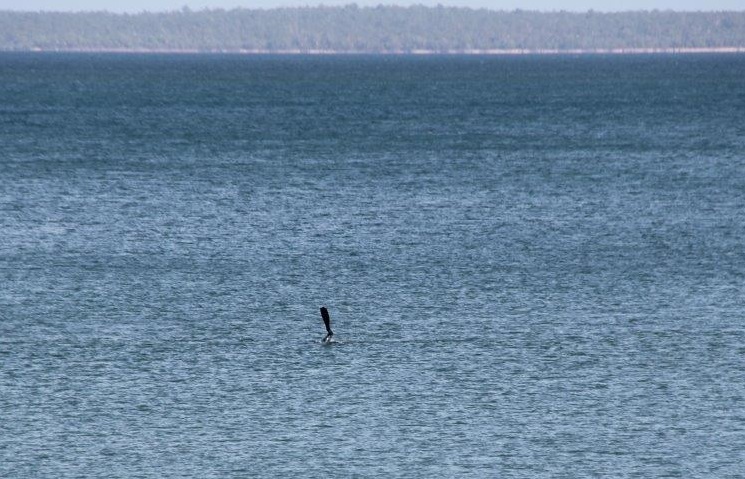Trepang Collecting; a Dangerous Job on the Cobourg Peninsula!
Posted on 19 July, 2016 in Cobourg
One of the joys of being a camp host at Cobourg Coastal Camp in remote Arnhem Land is the element of surprise during your daily duties. Having spent a few days in Darwin to collect extra supplies, challenge my taste buds at one of the myriad of restaurants and of course treating myself to a luxurious bath to soak away all that territory dirt, I was ready to weave my way back through Kakadu via the Arnhem Highway, across the East Alligator river then another four hours on a dirt road heading for the spectacular Cobourg Peninsula, Arnhem Land.
Once back into routine, and after the guests had departed for the day I took the opportunity to savour my breakfast at the camp’s 'sunset bar', a precipice which overlooks the pristine environs of Port Essington.
I feel like I am on a dessert island until I hear the deep murmur of what turns out to be a motor. Who is invading my territory and so close to the cliff?
The tide was going out so an out crop of rocks were exposed; who is this intruder coming so close? My first thought was an illegal fishing boat as it appeared to be trawling and I thought I could see fins caught in a drag net. With further investigation it turns out to be a regulated Trepang fisherman!

The first we have seen in these waters. The owner was driving the boat and there were four divers attached to a hooker therefore allowing them to search under water to collect the Trepang. My concern was that this area is shark and crocodile infested waters, in fact the previous evening the guests enjoyed observing a crocodile lurking in the shallows exactly where the divers were! They continued diving for quite some time and all I could see was the odd flipper twirling to the surface.

Eventually all divers crawled into the boat with their catch in nets. Apparently they return to their mother ship where they gut and boil the Trepang before selling to a manufacturer in Victoria. There are two varieties which fetch a price from the manufacturers from $12.00 to $24.00 per kilo.
This area, hundreds of years ago, well before British or Dutch occupation, ancient traders called the Macassans, utilised the prevailing winds to navigate their praus (boat) from Sulawesi in Indonesia to the shores of Port Essington. Here they set up camp during the wet season in search of trepang (sea cucumber) – Australia’s first export! During this time they traded goods (i.e. tobacco, alcohol, tools and rice) with the Indigenous people in return for trepang. This enabled the Macassans to develop a flourishing trepang trade with China. With the onset of the dry season, the intrepid travellers would return home utilising the southeast trade winds. Fascinating evidence of their occupancy is recorded through rock art, middens, Timor ponies and relics such as woks used to process the trepang.
I had no idea that there is a market for Trepang which is still being sent to China today.
Just another fascinating day out on the Cobourg Peninsula!
Words by camp host Heather Gange.
© 2014 Venture North | ABN: 34 142 533 113 | Privacy Policy | Terms & Conditions
Darwin Web Design by Dash Media


